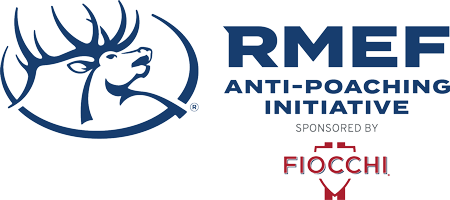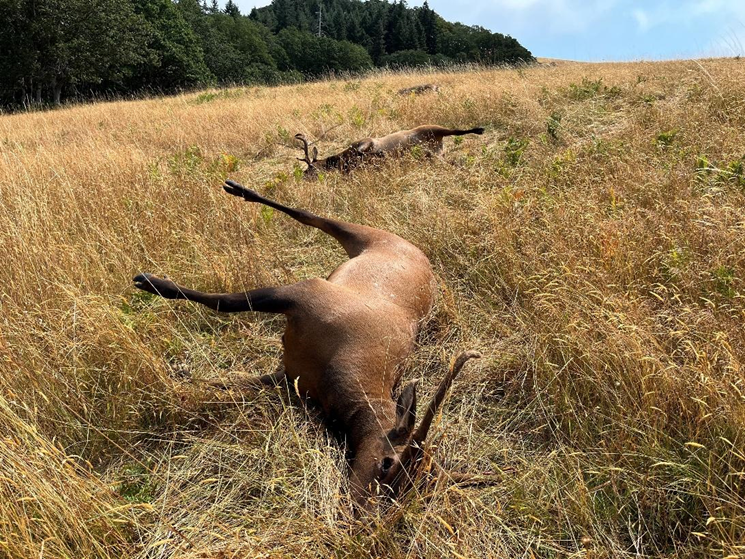
Below is a news release from the National Park Service. For 2024-2025, Fiocchi partnered with the Rocky Mountain Elk Foundation to increase the visibility of poaching incidents in an effort to reduce poaching.
Redwood National and State Park rangers and California Department of Fish and Wildlife wardens are asking for the public’s help in an investigation of elk poaching. Officials were notified on July 21 of four elk shot near the Williams Ridge area along Bald Hills Road. An investigation determined that the four elk had been killed and no meat had been taken. The area where the elk were killed is located within Redwood National Park, where hunting is prohibited by federal and state law. Officers also determined that lead shot was used to shoot the elk. Lead poisoning from ingestion of lead ammunition is the single largest threat to free-flying California condors.
The Yurok Tribe, in partnership with Redwood National and State Parks and other agencies including the U.S. Fish and Wildlife Service and California Department of Parks and Recreation, reintroduced California condors to the region two years ago. Poaching and illegal game killing pose a grave danger to the birds.
Anyone with information about this incident is urged to call 707-465-7751.
To remain anonymous, call CDFW’s CalTip line at 1-888-334-CalTIP (888-334-2258) or call the park’s anonymous crime tip line at 707-765-7353.
Redwood National and State Parks contains 133,000 acres of federal and state land in Humboldt and Del Norte Counties. Seven elk herds call Redwood National and State Parks home. The Roosevelt elk (Cervis elaphus roosevelti), is the largest of the six recognized subspecies of elk in North America; they once inhabited areas from southern British Columbia to Sonoma County, Calif.
Roosevelt elk in California persist today only in Humboldt and Del Norte Counties and western Siskiyou County. Tourists from all over the world and Californians alike enjoy the opportunity to see Roosevelt elk within their historical home range at Redwood National and State Parks. Park rangers are committed to protecting these amazing animals and urge the public to help them in this effort.
(Photo credit: National Park Service)
